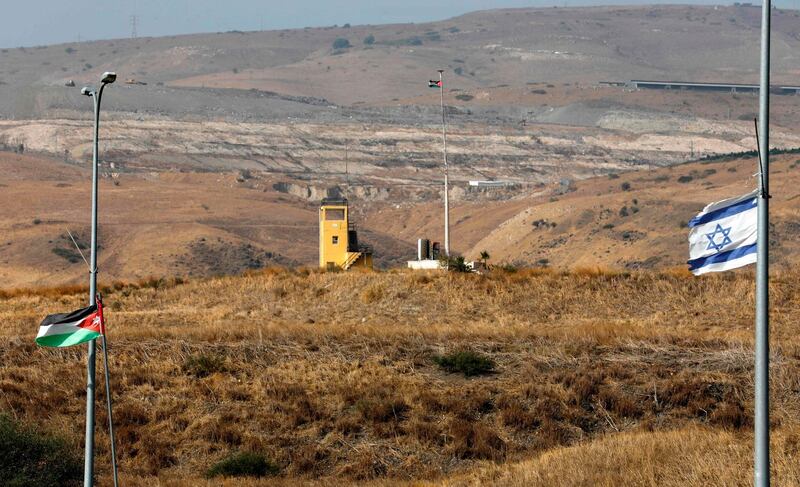Given the bigotry, discrimination and sheer brutality to which Palestinians have been subjected for decades by Israel, it is unsurprising that Tel Aviv treats its Arab neighbours with disdain. But as Jordanian analysts, officials and parliamentarians have argued, Israel has for too long taken its ties with the kingdom for granted. That might be about to change.
With an article of the 1994 Israel-Jordan peace deal that allowed Israel to lease Baqoura and Ghamr – fertile border lands owned by Jordan – set to renew automatically on Thursday, protesters took to the streets of Amman to urge King Abdullah to reclaim the territories. Meanwhile, 87 lawmakers signed a petition. All expressed their fury at decades of violent occupation. On Sunday, the king announced his decision to terminate the article.
This is a rare and significant admonition; Israel must understand that it cannot mistreat and murder Palestinians with impunity.
As a result, scenes of jubilation in Jordan greeted the decision, while Israeli analysts dismissed it as a populist manoeuvre. In many ways, this quarrel echoes the intractability of the Arab-Israeli conflict. Jewish entities owned Baqoura and Ghamr from the 1920s, although the lands became Jordanian following the 1948 war.
They serve as a humble reminder that people of different religions lived side by side in the Levant before war foisted borders upon them.
Today Israel is one of the region’s key destabilisers, running roughshod over Palestinians and international neighbours. But relations with Jordan have been particularly strained since July 2017 when two unarmed Jordanians were shot dead by an Israeli security officer at the Israeli embassy in Amman. Israel’s attempts to impose restrictions on the Al Aqsa mosque in Jerusalem, which is under Jordanian custodianship, have further soured relations. Clearly the 1994 deal brought no peace dividend for the Jordanians and it is time Israel faced the consequences of its actions.
And yet, Israeli agriculture minister Uri Ariel has already responded with intimidation, threatening on Monday to cut off water to Jordan.
Aside from the symbolic importance of reclaiming sovereign lands and confronting Israeli brutality, Jordan sits at a precarious juncture, politically and economically. With high national debt and mass unemployment, protesters filled the streets of Amman earlier this year. Meanwhile, Jordan is struggling to cope with more than 700,000 Syrian refugees.
The lands of Baqoura and Ghamr, where the Jordan and Yarmouk rivers converge, are the region’s breadbasket, blessed with fertile agricultural land. Back in Jordanian hands, they will provide crops and ample water supplies for a nation in need.
For too long Israel has bullied its neighbours and those same neighbours have turned a blind eye to Israel’s brutalisation of Palestinians. This should serve as a wake-up call in Tel Aviv that state-sponsored discrimination and murder will not go unpunished.





